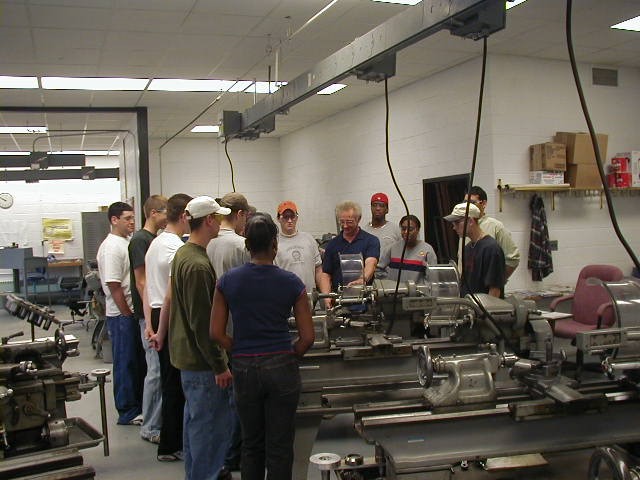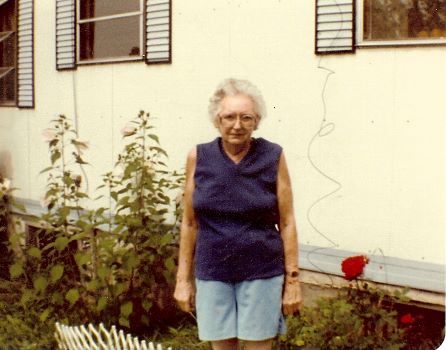By Chuck Wiser, I write the words to share what my eyes see and my heart feels
About three or four hours of previous writings are now on the “cutting room floor” as they would say in the newspaper pressroom. I started on a topic this afternoon writing about a couple of relatively new educational philosophy’s: STEM (Science, Technology, Engineering and Mathematics) vs STEAM (Science, Technology, Engineering, Arts and Mathematics. I was going to give my idea of the inner workings of both. However, in researching a little into the history and actual structure of the programs I learned that I have more to learn before I can knowledgeably do them justice. My recollection based on experience with the local STEM program led me to believe that the “M” in those acronyms actually meant “Manufacturing” as the Olean based STEM initiative was closely tied to local manufacturers and exploring career fields closely related to that.
After a couple of sleepless hours last night thinking on my topic and how I could fix it led my thoughts down a different path, albeit still on Education. Based on my personal experiences I have adopted the philosophy that any education beyond the high school level should cater to the individual student’s characteristics. The educational programs that they enter should take into account their needs based on interest, career objectives, financial need, ability, motivation and commitment.
A recent article featuring some programs at Alfred State College (ASC) prompted several “reader” comments regarding providing education beyond high school that was focused more on “Hands on training” and less on unrelated topics that were seemingly meaningless as far as contributing to their careers. There are as many differences in educational approaches to career development as there are “jobs to be filled”. In one sense that is true. There are several high school courses that many feel are a waste of time and that do not prepare students in the broader spectrum of “life after high school”. The courses like History, Math, English, Science etc. are meaningless to some, who don’t understand that some courses are meant more to bring structure and understanding of life in the world in which we live. Those who don’t like Math can’t see why they must take it. Those who don’t like English don’t particularly care if they understand grammar or can spell properly. These courses in high school aren’t about “getting a job”. Unless you have chosen one of the vocational, or career training paths, like BOCES offers, your employment choices are limited. The high school level education is focused on entry level jobs straight out of high school, and for which any advanced education is no longer needed.

I believe that everyone should be motivated and encouraged to pursue the highest level of education possible and available to them. I would tend to agree with those who feel that there should be government support for education past high school. Any financial support to higher (or more in depth) education, is an investment, in that higher wages and salaries would lead directly into a better contribution into the Social Security System and financial expenditures elsewhere.
Anyone reading my previous articles is likely to have read of my adult educational history. Upon graduation from high school, college was not an option for me. Knowing my mother’s limited salary and financial situation, I’m pretty sure she was relieved when I chose to go directly into the US Navy following my graduation. College education was never discussed. Given her lifelong work in a local manufacturing occupation, read that as a “factory worker”, there had not been any opportunity to build that nest egg that would have supplemented, or provided for, any college tuition. My previous working experiences in the hay fields around Nile, NY hadn’t allowed any savings for me. The military, at 17 years old, was the only option that made sense for me.
In the Navy I did not get the career option that I wanted as they didn’t have open slots available, so they put me into the Electronics Technician School instead. I had inherited extremely soft enamel deficient teeth, which the Navy commenced to fix. I had already faced significant dental work as a child to correct, or at least hide, the deficiency and knew that providing fillings was likely just buying time, so I was able to convince the Navy that the best option for me was to remove them all and provide me with dentures. Doing that while I was attempting to succeed in challenging trade specific schooling was not conducive to my successful education, so they dropped me out of school and sent me out into the fleet where I eventually ended up. I did end up back in electronics with “on the job” learning and being “rated” as a Gun Fire Control Technician working with the weapons control computers and electronics.
When I got out of the Navy, I knew one thing about careers. I did not want to work in electronics. When something was not workable, “or broken”, you couldn’t see it. If mechanical things are broken, you can see where and readily fix them.
While I was in high school one of the subject electives available to me was Mechanical Drafting. Mrs. Nancy McDermott was my “Drafting” teacher at Friendship Central School for three years. I had also taken Geometry courses as Math electives, so those courses and the knowledge gained therein, stood me well when my post military job search came to pass. Upon my discharge from the Navy, I applied for a job in Drafting at the Air Preheater Company. In the 60’s you could still get a decent job with just some ability, that particular high school background, and providing proof of my work.
That all brings me full circle back to education and the need for the education that you may not think you need. In many cases it all depends on the “piece of paper” that you get if you complete a widely recognized program. Once again, I set myself up as an example of that. Years later, when I was hired at Alfred State College, on the main campus, to teach in the Mechanical Engineering arena, I only had a bachelor’s degree. To join the “professorial” ranks on the ASC Alfred campus you have to have at least a “master’s degree” in your related field. Early on that was my objective. One quirk in the Alfred State College hierarchy and “teaching policies” treats the two campuses differently. Teaching on the Wellsville Campus, originally known as the School of Vocational Studies, later upgraded to the “School of Applied Technologies” following national trends away from the “Vocational” moniker, did not have the “professorial” ranking requirement tied to the need for a master’s degree. Actually, there were people who had reached the rank of “Full Professor” on that campus, having only a high school education.
Shortly after beginning my college teaching career, I was forced to develop a pretty decent knowledge and experience related to teaching the various manufacturing specialties that were needed by the employees of local manufacturing companies. Learning the specialties needed to teach those subjects soon led to teaching advanced manufacturing concepts, such as Computer Numerical Control programming, and Automated Manufacturing Processes, and for the opportunities to “reach out and teach out” at a vast number of companies throughout the Northeast spanning from companies like Gould’s Pumps in Seneca Falls, and their branch in Pottsville, PA. I taught hundreds of students from, then, Dresser-Rand in Wellsville and Olean, and Cutco Cutlery in Olean. I also “moonlighted” during breaks and weekends teaching for Jamestown Community College (both campuses) and Corning Community College.
My services as an Industrial Trainer, primarily for Alfred State, pretty much filled my life and time. With these extra-curricular programs, in addition to teaching my regular courses, I had a pretty full plate, making it impossible to earn my “formal” master’s degree requirement credentials.
Cutting to the end of the story, when I retired from Alfred in 2008, I was teaching advanced courses in our Mechanical Engineering Technology Bachelors program, and designed, developed and authored, a completely new bachelor’s degree program in Manufacturing Technology.
However, I was still “just” an Instructor and retired at an income level well below that of my graduating students from both the two year AAS degree programs and four year Bachelor’s degree. I was without the necessary educational credentials and no advanced degree.
I didn’t have “the paper” that said I could do all those things that I was doing, and in a way, proudly, like my mother, I was a factory worker.
My Mother Was A Factory Worker
My mother was a fact’ry worker, she seemed to never rest.
But of the scholars I’ve ever known, she was the very best
Born to a farmer, that was her life, past high school was no choice.
Despite the challenge, an Army wife, her wisdom was the voice.
The second grade I was doomed to fail, I hadn’t learned to write.
I practiced hours close by her side, I learned to do it right.
In high school days, my math a challenge, in school her math excelled.
We worked for hours,“times two” was learned, and too, how words were spelled.
My mother was a fact’ry worker, but time not short for me.
Had she not taken the time to teach and show what I could be.







